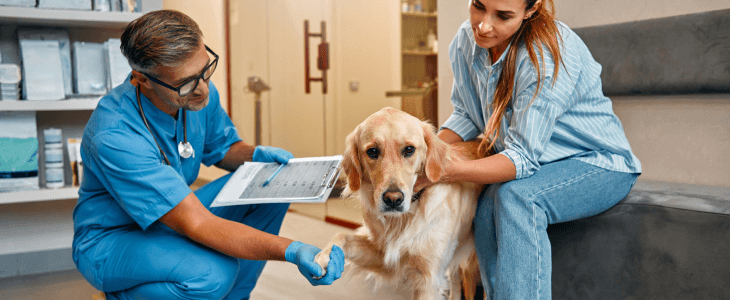Starting a veterinary practice can be an exciting but daunting process. Deciding on a structure for your veterinary practice can help you protect yourself and your business interests. Many states allow professionals, including veterinarians, to create a professional limited liability company (PLLC). In addition to providing personal liability protection, PLLCs offer several tax benefits, including pass-through taxation.
What Is a PLLC?
A Professional Limited Liability Company, or PLLC, is a specific type of business structure available to licensed professionals, like doctors or veterinarians. The PLLC structure is not available in every state. PLLCs offer veterinary practices a way to organize a business that offers many of the advantages of partnerships and corporations.
PLLCs provide flexibility for the management of veterinary practices while also protecting the owners’ personal assets from business debts. To form a PLLC, you’ll need to follow the specific requirements in your state, which typically involve filing articles of organization, creating an operating agreement, and obtaining necessary licenses and permits.
Pass-Through Tax Benefits
The tax benefits of PLLCs make them popular among small business owners. PLLCs are considered pass-through business entities to file federal income tax. The profits made by the veterinary practice will be passed down to the owners, also called members. The member will pay income tax, not the entity itself. The main benefit of pass-through taxation is avoiding double taxation. The pass-through setup is more straightforward than an S-Corp or C-corporation structure. Traditional corporations must pay double taxation at the personal and corporate levels for the same income source.
Avoiding double taxation can create significant savings. PLLCs with a single owner frequently file taxes similarly to sole propriety, while PLLCs with more than one member may file as a limited liability partnership (LLP). Consulting with an attorney can help veterinary practice owners determine the most strategic way to file for taxes. Filing a single tax return can simplify the process and reduce professional service fees and annual filing costs.
The Qualified Business Income (QBI) Deduction
The owner or owners of a veterinary PLLC may be eligible for a qualified business income (QBI) deduction. QBI deductions are available for people with “pass-through income” they report on their personal tax returns. PLLC members who own a veterinary practice can deduct up to 20 percent of their qualified business income when they file their personal income taxes.
You will need to determine your business income and expenses and then your adjusted gross income before calculating the pass-through deduction. The QBI deduction can lead to significant savings for those with an annual taxable income under $191,950. If your income exceeds this amount, complex IRS rules will determine whether your business income qualifies you for a full or partial QBI deduction. Speaking to an attorney and financial professional can help you create a strategy to minimize your tax liability.
Contact a Veterinary Attorney
Deciding on an effective business structure for your veterinary practice can help you limit your tax liability. If you own a veterinary practice, our team of experienced attorneys is prepared to help you decide on a business structure. We will handle the process of filing all of the necessary documents and help you meet ongoing requirements. Don’t hesitate to contact Mahan Law – Veterinary Attorney today to schedule a complimentary, no-obligation consultation.




